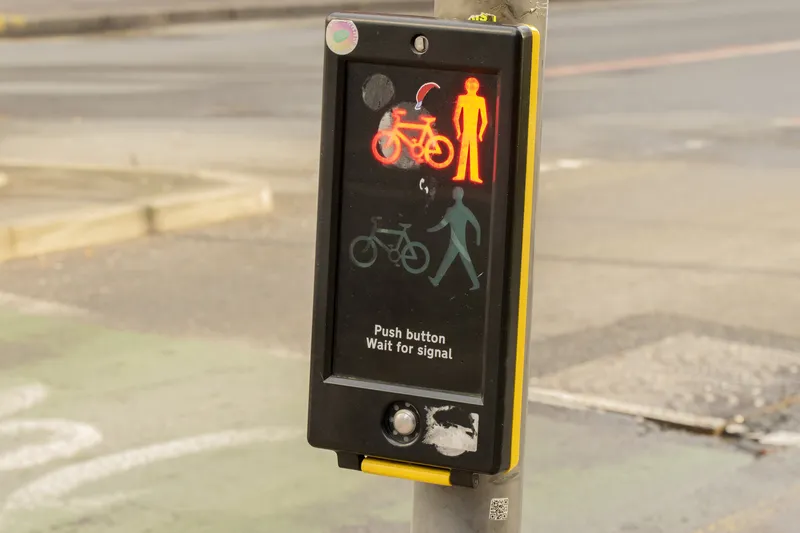European and US experts in health, city planning, environment and transport recently met in Brussels at the Polis Environment & Health working group meeting to discuss integrating health aspects in transportation planning to improve urban mobility and gain substantial savings in public health. Brussels, Paris and London presented their policies and discussed the measures they had implemented, such as low emission zones, community travel plans, incentives for walking and cycling, awareness raising and promot
November 2, 2012
Read time: 3 mins
European and US experts in health, city planning, environment and transport recently met in Brussels at the Polis Environment & Health working group meeting to discuss integrating health aspects in transportation planning to improve urban mobility and gain substantial savings in public health.
Brussels, Paris and London presented their policies and discussed the measures they had implemented, such as low emission zones, community travel plans, incentives for walking and cycling, awareness raising and promotional campaigns, with the shared goal of reducing use of the private car, improving air quality, and accommodating more pedestrians and cyclists. "Cities must take action now if they want to obtain substantial benefits in public health and drive a positive growth in the job market and public financing" said Paul Curtis of the London European Partnership for Transport (LEPT).
Health benefits from increased physical activity in our daily life such as walking and cycling to work and school not only translate into individual gains but benefit the entire community. The1819 World Health Organisation's (WHO) Health Economic Assessment Tool (HEAT) can help in measuring the health benefits for increased physical activity among the population and support the decision making process.
According to Simona Arletta, City of Modena councillor in charge of health and president of the Italian Healthy City Network, "Spending US$51,000 on completing our cycling network will have a return on investment of US$535,000 in financial savings in public health over a period of ten years" said Ms. Simona Arletti, city councilor in charge for health and president of Italian Healthy City Network. "Quantifying public health gains is crucial to justify decisions before my city planning department and demonstrate the importance of promoting active travel among citizens."
Laurent Jardinier of CERTU, the French Centre for the Study of Urban Planning, Transport and Public Facilities, argued for an holistic approach and integration of all modes of transport. He said, "PDUs, the French equivalent of Sustainable Urban Mobility Plans, aims at preserving health conditions of inhabitants. This is quite an innovative approach, yet transport and health policies need more integration."
Presenting the US Policy Framework, William Lyons from the Volpe Institute said they are working "toward comprehensive intermodal transportation planning with all institutions following the 3C Process: Comprehensive, Coordinated, Continuous" with the aim of overcoming fragmented decision-making.
European cities have rich set of tools and planning approaches to achieve a better quality of life in cities by promoting healthier communities. "It's a matter of conveying a positive message to all political actors and institutions starting from the EU level" said Polis director Sylvain Haon.
Brussels, Paris and London presented their policies and discussed the measures they had implemented, such as low emission zones, community travel plans, incentives for walking and cycling, awareness raising and promotional campaigns, with the shared goal of reducing use of the private car, improving air quality, and accommodating more pedestrians and cyclists. "Cities must take action now if they want to obtain substantial benefits in public health and drive a positive growth in the job market and public financing" said Paul Curtis of the London European Partnership for Transport (LEPT).
Health benefits from increased physical activity in our daily life such as walking and cycling to work and school not only translate into individual gains but benefit the entire community. The
According to Simona Arletta, City of Modena councillor in charge of health and president of the Italian Healthy City Network, "Spending US$51,000 on completing our cycling network will have a return on investment of US$535,000 in financial savings in public health over a period of ten years" said Ms. Simona Arletti, city councilor in charge for health and president of Italian Healthy City Network. "Quantifying public health gains is crucial to justify decisions before my city planning department and demonstrate the importance of promoting active travel among citizens."
Laurent Jardinier of CERTU, the French Centre for the Study of Urban Planning, Transport and Public Facilities, argued for an holistic approach and integration of all modes of transport. He said, "PDUs, the French equivalent of Sustainable Urban Mobility Plans, aims at preserving health conditions of inhabitants. This is quite an innovative approach, yet transport and health policies need more integration."
Presenting the US Policy Framework, William Lyons from the Volpe Institute said they are working "toward comprehensive intermodal transportation planning with all institutions following the 3C Process: Comprehensive, Coordinated, Continuous" with the aim of overcoming fragmented decision-making.
European cities have rich set of tools and planning approaches to achieve a better quality of life in cities by promoting healthier communities. "It's a matter of conveying a positive message to all political actors and institutions starting from the EU level" said Polis director Sylvain Haon.








